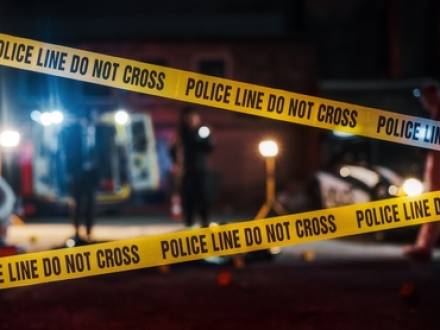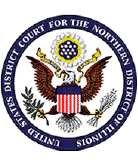How Do You Fight Drug-Induced Homicide Charges in Illinois?
 On October 28, 2023, actor Matthew Perry, best known for his role on Friends, died from an overdose linked to ketamine. Nearly two years later, on September 3, 2025, federal prosecutors secured a guilty plea from someone nicknamed the "Ketamine Queen," who admitted to supplying the drugs that caused Mr. Perry’s death. Facing up to 65 years in prison, her sentencing is scheduled for later this year. The case made headlines worldwide and shows how aggressively prosecutors pursue drug-induced homicide charges when a life is lost.
On October 28, 2023, actor Matthew Perry, best known for his role on Friends, died from an overdose linked to ketamine. Nearly two years later, on September 3, 2025, federal prosecutors secured a guilty plea from someone nicknamed the "Ketamine Queen," who admitted to supplying the drugs that caused Mr. Perry’s death. Facing up to 65 years in prison, her sentencing is scheduled for later this year. The case made headlines worldwide and shows how aggressively prosecutors pursue drug-induced homicide charges when a life is lost.
Facing similar allegations in Illinois can be just as devastating. Prosecutors here bring drug-induced homicide cases under some of the toughest state laws in the country. If you or someone you love is charged, having an experienced Chicago, IL drug-induced homicide defense lawyer by your side is the first step in building your defense.
How Do Drug-Induced Homicide Charges Work in Illinois?
In Illinois, anyone who delivers a controlled substance that causes a fatal overdose can be charged with drug-induced homicide. Under 720 ILCS 5/9-3.3, prosecutors do not have to show that you intended to kill anyone. Instead, the law focuses on whether the drug you allegedly provided was used and caused the fatal overdose. Because of this broad language, even sharing a small amount of drugs with a friend can trigger charges if tragedy follows.
Drug-induced homicide is classified as a Class X felony. That means the sentence can range from six to 30 years in prison, without any option for probation.
Does the Illinois Drug Overdose Immunity Law Apply in Drug-Induced Homicide Cases?
Illinois has taken steps to encourage people to call for help when someone overdoses. Under 720 ILCS 570/414, a person who seeks medical attention for an overdose victim may be protected from being charged with certain possession offenses. This statute is sometimes referred to as the "Good Samaritan Law," and it is designed to save lives by removing the fear of punishment for those who take quick action in an emergency.
But the protection is limited. Drug-induced homicide charges are specifically excluded from the immunity law. In other words, even if you call 911 and try to help, prosecutors may still charge you if they believe you delivered the drug that caused the death. This makes it especially important to avoid making statements to police without an attorney present.
Common Defenses Used Against Drug-Induced Homicide Charges in Illinois
Although these charges are serious, several defenses may apply depending on the facts of your case:
-
Challenging causation: Under 720 ILCS 5/9-3, the state must prove that the drug you allegedly provided was the proximate cause of the death. If the victim had multiple substances in their system or suffered from underlying health conditions, it can weaken the prosecution’s case.
-
Questioning the evidence: Text messages, social media activity, or witness testimony may not clearly prove that a delivery occurred. A defense lawyer can challenge whether this evidence is accurate, reliable, or admissible.
-
Demonstrating constitutional violations: If police conducted an illegal search, seizure, or interrogation, your rights under the U.S. and Illinois Constitutions may have been violated. Evidence obtained this way can often be suppressed.
Contact a Cook County, IL Drug-Induced Homicide Defense Attorney
Drug-induced homicide charges bring serious consequences, emotionally, legally, and personally. You need representation that is dedicated to your case. At Law Offices of James F. DiQuattro, we go the extra mile for our clients, fighting aggressively every step of the way to protect your rights. Contact our Chicago, IL drug-induced homicide defense lawyer today at 312-627-9482 to schedule a free consultation.
















